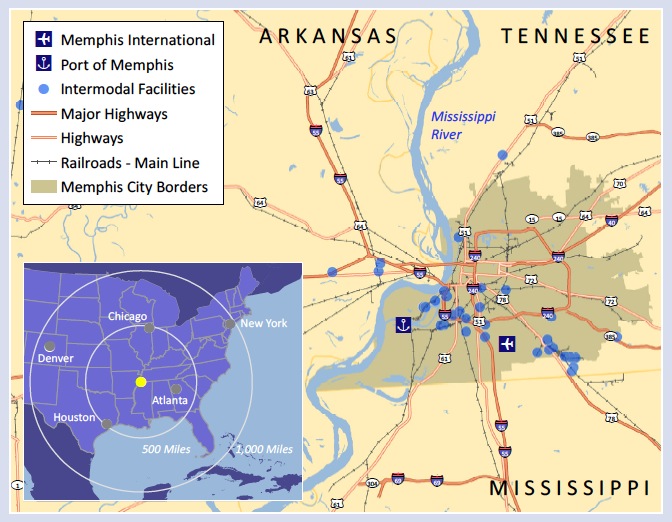BROOKINGS INSTITUTION
By Adie Tomer, Joseph Kane, and Robert Puentes
Summary
One of the lessons from the Great Recession is the need to grow and support the tradable sectors, typically manufacturing and high-end services, of our metropolitan economies. But to drive these tradable sectors, metropolitan areas need physical access to markets. Metropolitan freight connectivity enables this access and the ensuing modern global value chains. Without it, trade cannot occur.
This report establishes the economic rationale for metropolitan goods trade, describing why, how, and what these areas exchange with each other. It makes these key points:
- Metropolitan economies cannot function unless they trade goods with one another. Land, labor, and capital limit what a metropolitan area can produce on its own, meaning goods trade is essential to deliver economic benefits to metropolitan economies. If economic benefits compel metropolitan areas to trade, then transportation makes those benefits a reality.
- Recent global trends make domestic and international trade more prevalent and more competitive than ever. Major innovations of the 20th century—freight technologies like expanded shipping capacity, new logistics resources, and communications infrastructure like broadband—reduced the costs of trading goods within and among different countries. At the same time, national governments liberalized trade through barrier reductions like free trade agreements. These forces helped global merchandise volumes reach $18.3 trillion in 2012, an increase of over 400 percent since 1990. In the process, trade effectively reduced the distance between markets, expanding domestic and global competition over firms’ production costs, limited energy resources, and overall market power.
- The rise of global value chains forces metropolitan areas to assess their relationship to the global economy. Goods production is no longer dominated by single production lines concentrated in one country. Emerging markets are now major participants in global value chains, meaning value creation occurs in multiple locations, through various firms, and typically spans manufacturing and service industries.
- To maximize trade’s economic returns, metropolitan areas need a firm understanding of their economic position as well as a supportive policy framework. To do that, metro leaders need to understand global trading networks. They also must recognize the importance of transportation assets—both within their region and beyond—to enable trade. Unfortunately, current trade measures and public policies are either limited to national indicators or omit most metropolitan areas, obscuring domestic trade networks in the process. Today in the United States there is no national freight strategy, and most metropolitan areas fail to implement comprehensive trade strategies.
The long-term goal of this series is to inform a new model of freight policy and practice where public and private leaders work in concert to create a more favorable trade environment for the American economy. Through a series of statistical surveys, it will offer policymakers and the private sector a toolkit to map and analyze goods trade in the 21st century. This paper is the first step in that process: establishing the foundational importance of goods trade to metropolitan economic health and vitality.
Download full version (PDF): Metro Freight
About Brookings Institution
www.brookings.edu
“The Brookings Institution is a nonprofit public policy organization based in Washington, DC. Our mission is to conduct high-quality, independent research and, based on that research, to provide innovative, practical recommendations that advance three broad goals: Strengthen American democracy; Foster the economic and social welfare, security and opportunity of all Americans; and Secure a more open, safe, prosperous and cooperative international system. Brookings is proud to be consistently ranked as the most influential, most quoted and most trusted think tank.”
Tags: Brookings Institution, Freight, Memphis, Tennessee, TN







 RSS Feed
RSS Feed